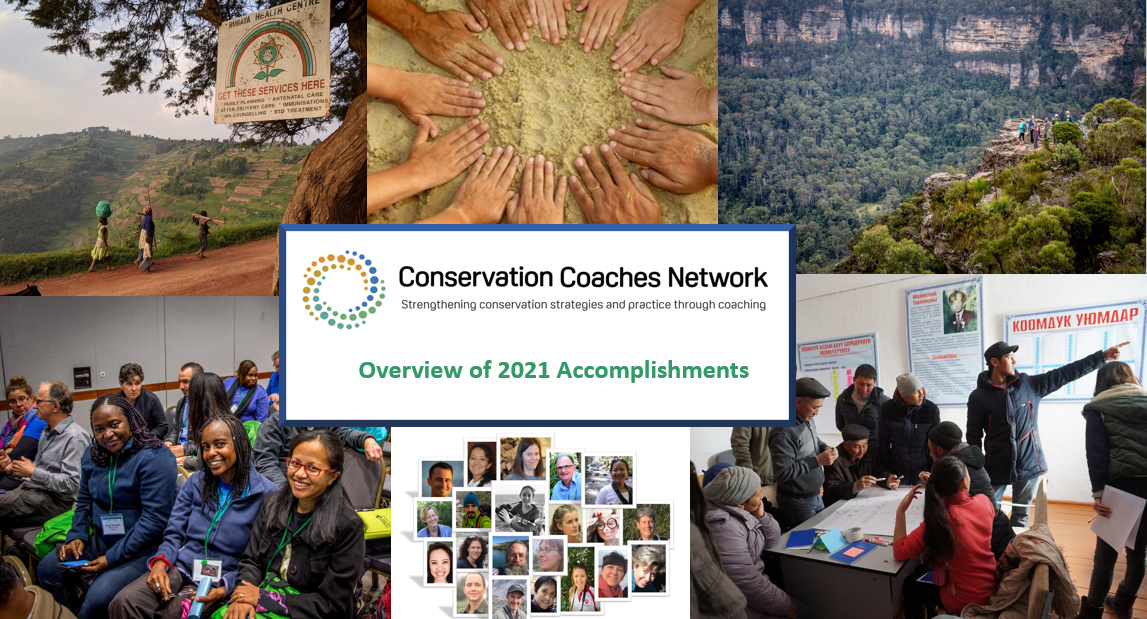
During the year 2021 our world struggled through disruptions and challenges caused by the continued global COVID-19 health emergency which in many places happened in conjunction with environmental and social emergencies. Since we had to postpone our biennial gathering from May of 2020 to October in 2022, we held a virtual gathering in 2021. In spite of numerous challenges, CCNet coaches have kept busy, adapting, training others and supporting conservation projects around the world.
Working with our partners, some of our biggest accomplishments in 2021 include:
- Successfully completed our first online Rally – Adapting to a Changed World, with 221 participants from 41 countries
- Certification of 3 coaches from Australia, Canada/United Kingdom, United States
- Conservation Standards version 4.0 document in Mongolian (Spanish is in progress) and PowerPoint presentations in English and French
- Guidance and tools to support protected area management in Mongolian, Spanish and English (Chinese is in progress)
- Planning a smaller version of our in-person gathering for October 2022 in Victoria, Canada
Coaches:
We currently have 708 active coaches, representing over 250 institutions and helping projects in 69 countries on all continents. Slightly over half of our coaches work with non-profit organizations, followed by 18% in independent consultancies and close to 17% in government agencies. We also have smaller percentages of participants from academic institutions, community-based and indigenous organizations and networks, foundations, and land trusts. Coaches interact on a global online forum in English, to exchange experiences, questions, resources and opportunities related to the practice of conservation.
Regional Networks and Communities of Practice: We currently have nine active regional networks and two thematic communities of practice. One of the communities of practice focuses on teaching adaptive management in collaboration with academic institutions, and the other one focuses on supporting practitioners and conservation coaches working on Conservation Standards projects on Indigenous Lands and Waters. In 2021, practitioners in Africa, Australia, Europe, Latin America, North America, and Southeast Asia connected in their own language and cultural context, sharing updates and experiences regarding the practical application of the Conservation Standards, as well as complementary methods, approaches, and relevant information.
Read the full report HERE.
